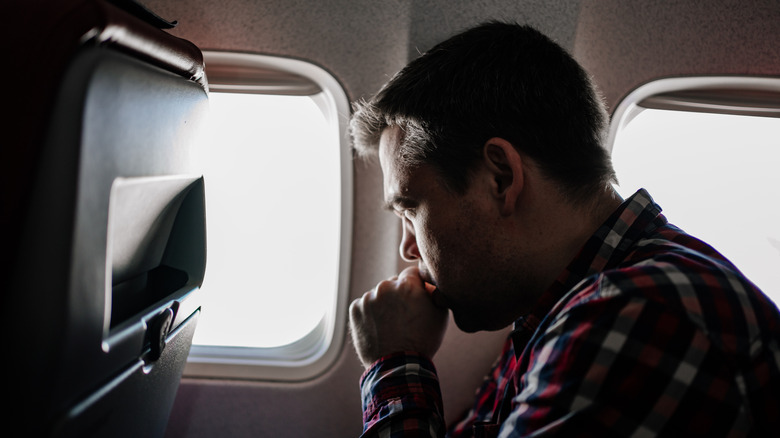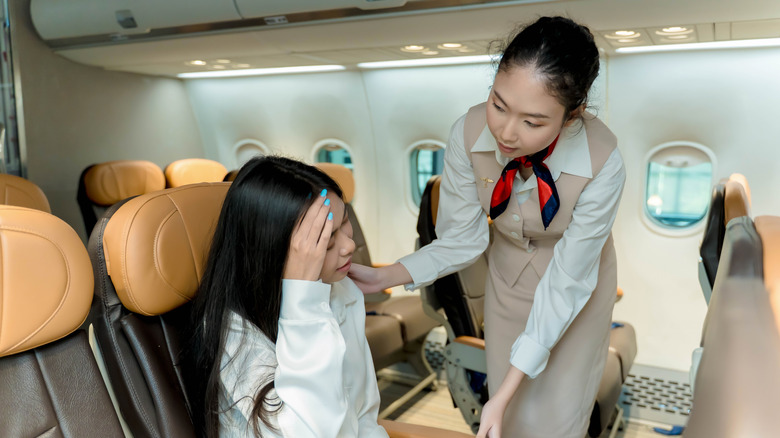How Flight Attendants Can Easily Spot A Nervous Flyer
Sometimes flying can be a nerve-racking experience, even if you have a dream-worthy destination on the other end of the flight. Whether you've opted for a flight at the best time of day to avoid turbulence, or you've done your homework to seek out the best airline for anxious flyers, sometimes preparation alone isn't enough to combat the fear of flying from creeping in. There are several things which warrant nervousness around boarding a plane. Fear can be sparked from common experiences like turbulence or other tragic happenings such as plane crashes. Thankfully, flight attendants have a few ways to spot nervousness, from slight discomfort to those on the verge of a panic attack.
While you can tell a flight attendant about your potential flight concerns (it is possible to ask to greet the pilot too if this will help soothe your nerves), oftentimes a flight attendant can tell who needs extra assistance because they reveal signs of being on edge, like fiddling, trembling, or excessive sweating. They may also show signs of dizziness, nausea, or difficulty breathing.
Flight attendants might be able to support you in alleviating the symptoms by relocating you to a seat that is less anxiety-inducing, such as the seats by the bulkhead that provide more leg room and don't have anyone reclining their seat in front. An acute or a severe fear of flying can be uncomfortable to travel with, but thankfully, airline staff can support you directly, or even speak with someone you are travelling with to help you with your needs.
Other ways flight attendants spot and support nervous flyers
In the case of anxiety attacks, flight attendants are trained to be able to professionally support and calm passengers through this tough experience. Flight attendants receive psychological first aid training, which means they are prepared to respond to signs of distress and offer emotional support to passengers. It's their job to note signs of stress, offer words of encouragement and regular check-ins, and in general ease anxiety with smiles and warmth. For international or long-haul flights, more airlines are beginning to provide flyers with digital in-flight resources to make the most of, such as guided meditations or calming music and sounds, which flight attendants may bring to your attention.
If you're a nervous flyer or catching your first flight and don't know what to expect, it may be worth letting flight attendants know during the boarding process or calling up and alerting the crew prior to your travel day. Some passengers have had success with this and received extra support, such as being able to pre-board, receiving extra comforts and snacks, and even receiving regular updates from the cabin crew throughout the flight about turbulence and other occurrences.
Your flight crew may be more than willing to share tips to get you through your flight fears based on their training and experience. Both anxious flyers and those comfortable with the flying experience benefit from the calm communication and tone from staff, which is intentionally used to combat any nerves. If you need additional support, you can always download an app for nervous flyers who hate turbulence.

